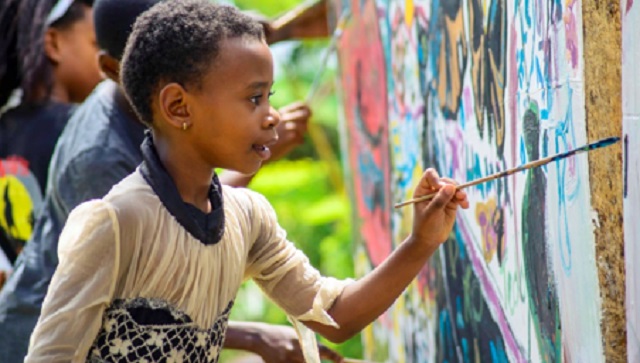
Kampala, Uganda | THE INDEPENDENT | Uganda is not spending enough on developing the future productivity of its citizens. Consequently, a child born in Uganda will only be 38 per cent as productive when they grow mainly because they don’t enjoy complete and good quality education and full health, a study by the World Bank has observed.
“A child born today in Uganda is expected to complete only seven years of education combined by age 18. Because of low levels of learning achievement in Uganda, this is only equivalent to 4.5 years of learning,” notes the report which looked at economic development and human capital in Uganda.
The report, launched by Higher Education John Muyingo at Makerere University on Thursday, added that a child in Ugandan schools loses 2.5 years at the primary and secondary level because of poor quality education.
In what it describes as a learning crisis, the report notes only 6 per cent of pupils in Uganda at primary four can read a paragraph, which is far below Kenya’s at more than 20 per cent.
“Numeracy skills are equally poor and only 2 per cent of students in Uganda could solve a simple age-appropriate mathematics problem by age of P.4,” the report says, noting it is much below Kenya and Tanzania at 10 and 9 per cent respectively. Uganda’s score on the education quality component is below the sub-Saharan Africa average.
The researchers found that while 70 per cent of P.6 students achieved the minimum competency level in reading, only 40 per cent of those tested reached the same competence in mathematics. They say evidence of poor learning outcomes is substantiated by the national Early Grade Reading Assessment results.
The researchers found that only 28 per cent of pupils in primary three can read 20 words per minute far below the expectation that all children should be able to read a simple paragraph by that age.
The report says that the high enrollment rates at primary education, government’s achievement song, hides low learning outcomes and completion rates.
A child who has gone through this environment, researchers indicate, can barely achieve full potential when they turn 18, the official age one is regarded as an adult in Uganda.
“Up to the lower secondary level, education is needed for more than earning income. It enables all aspects of youth transition from dependence to independence…has powerful effects on several positive social behaviours such as reducing fertility and prevent child marriages.”
The World Bank has noted that Uganda’s economy could expand by USD 2.7 billion by 2030 if it ended child marriages today. World Bank Uganda country manager Antony Thompson said the report highlighted two important issues for the country: the health of the economy and learning levels.
“The percentage of Ugandans going to school is at the danger of falling as the population increases,” said Thompson. This is not the first report to highlight the learning crisis in Uganda. Other organizations, including Uwezo have shown Ugandan children are hardly learning.
*****
URN
 The Independent Uganda: You get the Truth we Pay the Price
The Independent Uganda: You get the Truth we Pay the Price



